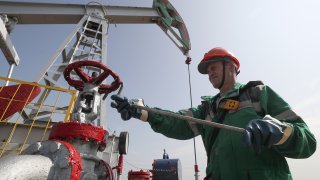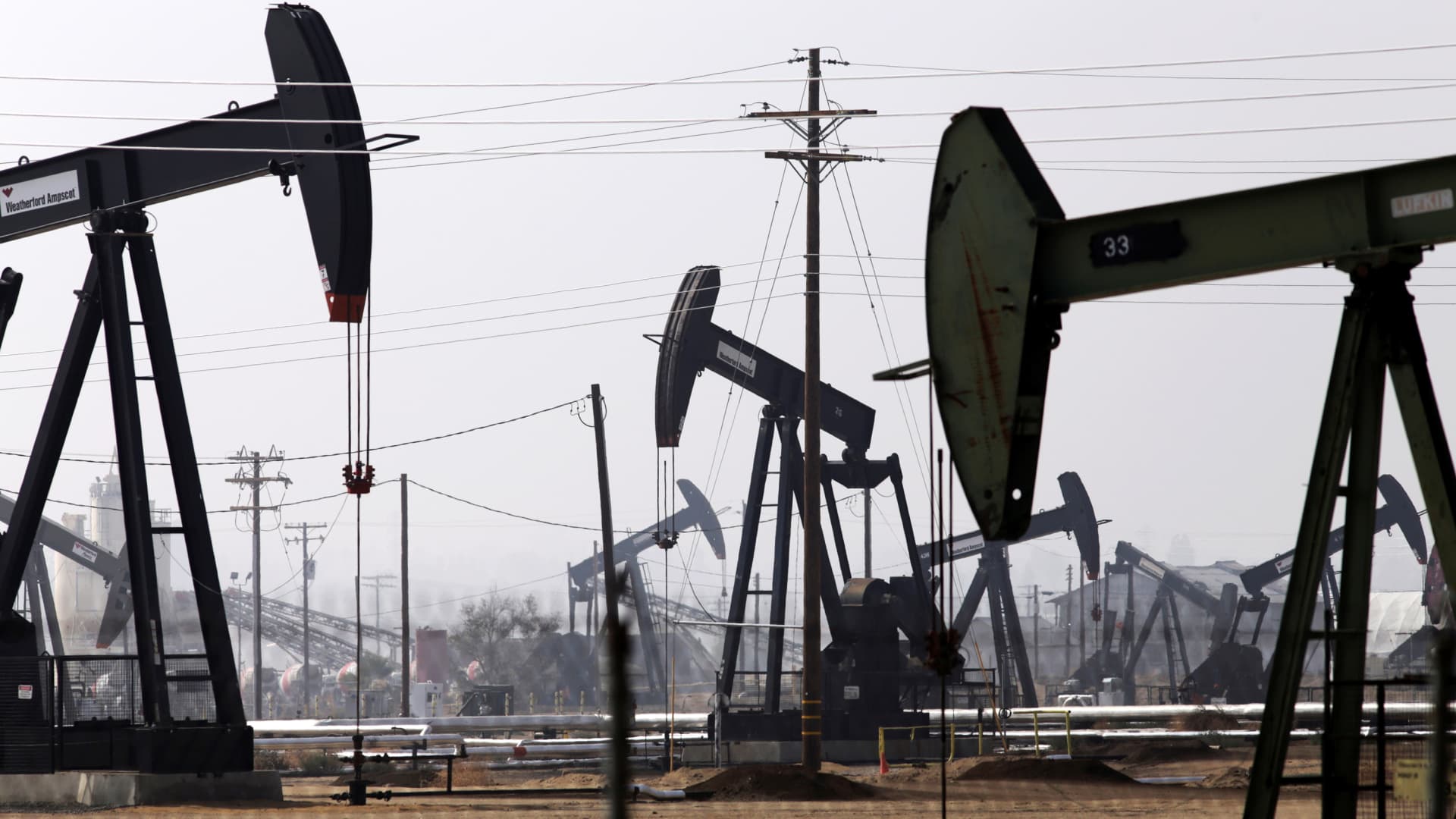
- John Kilduff, partner at Again Capital, called on de facto OPEC leader Saudi Arabia to use its spare capacity to help the global market, stand up to its non-OPEC partner Russia, and support Ukraine.
- Sanctions imposed on Russia over its invasion of Ukraine have so far been carefully constructed to avoid directly hitting the country's exports, although there are signs the measures are inadvertently prompting banks and traders to shun Russian crude.
- Russia is one of the world's largest oil-producing nations and the world's second-largest producer of natural gas.
OPEC and non-OPEC partners, an influential energy alliance known as OPEC+, agreed on Wednesday to stick to their plans of small output rise in April, defying calls for more crude even as prices rally to multi-year highs on Russia supply disruption fears.
It comes as Russia's intensifying war with Ukraine enters its seventh day, with fighting raging across the country.
The producer alliance said it had agreed to adjust the upward monthly overall output by 400,000 barrels per day for the month of April. The decision had been widely expected by energy analysts.
Feeling out of the loop? We'll catch you up on the Chicago news you need to know. Sign up for the weekly Chicago Catch-Up newsletter here.
Oil prices jumped on the news. International benchmark Brent crude futures traded at $113.36 a barrel on Wednesday afternoon in London, up around 8%, while U.S. West Texas Intermediate futures stood at $111.42 a barrel, roughly 7.8% higher.
OPEC alone accounts for around 40% of the world's oil supply.
Ahead of the meeting, the International Energy Agency said it would move forward with a 60-million-barrel global release to offset energy market disruptions caused by international sanctions against Russia over its war with Ukraine. The U.S. has said 30 million of that total will come from the U.S. Strategic Petroleum Reserve.
Money Report
The release of oil from the U.S. and other IEA members reflects the magnitude of expected disruptions to global energy markets.
John Kilduff, partner at Again Capital, described Russia's war with Ukraine as "a dramatic moment for the market and the world, and supplies." As a result, he called on de-facto OPEC leader Saudi Arabia to use its spare capacity to help the global market, stand up to its non-OPEC partner Russia, and support Ukraine.
"It is time for Saudi Arabia to step up and be the friend that they always claim they are to the United States and quite frankly to their other customer base, particularly in Asia," Kilduff told CNBC's "Closing Bell" on Tuesday.
"The Saudis have it within their power to snuff out some of this rally that we're seeing for sure. They could easily put another 1 million to 2 million barrels per day of oil on the market with almost the flick of a switch," he said.
"That's what I think they should be talking about doing and acting towards and be more pro-West and pro-Ukraine, for that matter, rather than with their business partner of Russia."
Biden: Putin has 'no idea what's coming'
Sanctions imposed on Russia over its invasion of Ukraine have so far been carefully constructed to avoid directly hitting the country's exports, although there are signs the measures are inadvertently prompting banks and traders to shun Russian crude.
In the event that Western leaders were to impose sanctions on Russia's energy exports, a move the White House says is "certainly on the table," it would have far-reaching implications for the global economy.
Russia is one of the world's largest oil-producing nations and the world's second-largest producer of natural gas.
U.S. President Joe Biden warned Russia's Vladimir Putin in a State of the Union speech on Tuesday that he has "no idea what's coming" shortly after a flurry of Western oil majors announced plans to pull the plug on their Russian operations.

Alex Booth, head of research at Kpler, said the problem for OPEC+ is that Saudi Arabia and the United Arab Emirates were currently the only ones with spare capacity to raise production.
"The danger is that if it is across OPEC+ they show their hand that they can't really do it as a whole. If it is Saudi and the UAE going alone then they are really butting up against the rest of the organization and then against Russia as well. So, they are in a very difficult situation within the group," Booth told CNBC's "Street Signs Europe" on Wednesday.
"There will of course be a lot of pressure externally but I think the retort from them is 'well, the U.S., there is nothing stopping you producing as well, why don't you talk domestically about what you can do to increase oil supply? Never mind what we are doing.'"
Analysts at political risk consultancy Eurasia Group said that for the Gulf countries, most of which are part of the OPEC+ alliance, there are two factors at play: oil and geopolitics.
"Saudi Arabia and the UAE are unlikely to pursue policy positions on the Russia-Ukraine conflict that end up causing a major rift in the oil market management framework which is key to the stability of revenues over the long term," they said.
Doubts over whether OPEC+ can deliver
The producer alliance is in the process of unwinding record supply cuts of roughly 10 million barrels per day. The historic production cut was put in place in April 2020 to help the energy market recover after the coronavirus pandemic cratered demand for crude.
Last month, OPEC+ swiftly decided to green-light the return of 400,000 barrels per day for March.
The group has faced sustained pressure from top consumers such as the U.S. and India to pump more to reduce prices and aid the economic recovery. The group has resisted calls for speedier increases, however, despite surging oil prices.
Louise Dickson, senior oil market analyst at Rystad Energy, said a sizeable SPR announcement from the U.S. and other importing countries on Tuesday was not likely to impact the decision for OPEC+ to increase its quota ceiling by 400,000 barrels per day for April.
"However, the pledge from OPEC+ to increase supply is so far a paper promise, as our supply database indicates that the participating OPEC+ deal members are in fact producing about 800,000 bpd below stated target levels, adding to the shortness in the supply market and further stoking the bullish price environment," Dickson said.
Stephen Brennock, a senior analyst at London-based PVM Oil Associates, also said expectations were such that OPEC+ was likely to "rubber-stamp" an agreement to add a further 400,000 barrels per day in April.
Nonetheless, "doubts will be pervasive as to whether it will be able to deliver on such a promise given its recent track record of failing to meet its output targets," he added.






